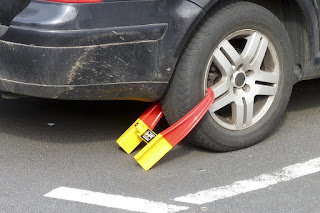That moment when you discover you’ve run yourself into a financial crisis is stressful to say the least. These disasters are typically the culmination of a range of minor issues piling one on top of the other up to a breaking point. Then, it all rushes over you, resulting in a horrible deluge of fear and stress. Despite what many people show on the surface, this kind of psychological burden isn’t something that you can shrug off from one minute to the next. However, if you’re able to deal with the stress in an effective way, you’ll have a much better chance of success trying to turn the situation around. Here, I’ve listed the best strategies for overcoming the stress of a personal financial crisis.
Stop Wasting Time
A lot of people have a natural inclination to respond to extreme stress by simply procrastinating. Instead of knuckling down and taking a bite out of the problem they’re facing, they choose to invest all their time and energy into tasks and activities that have absolutely nothing to do with the issue. Sure, you’ll be able to distract yourself from the financial problems you’re facing, and get a little comfort out of this. However, procrastination always ends up making the problem worse, and leads to it catching up to you with greater intensity. I know it can be hard, but make a point to
stop procrastinating. Instead, devote your time and energy to the things that prompted you to find this post in the first place. This may not be the most practical tip in the world, but it’s important to keep in mind if you want to dig yourself out of your problems quickly and effectively.
Cut Off Channels of Easy Spending
One of the worst aspects to finding yourself in a financial crisis is the overbearing sense that you’ve lost all control. Believe me, this is almost always a total illusion, and usually stems from not knowing where all your money is going. When your checking account is constantly empty, and you have no idea why, it can be extremely stressful and worrying, but there are usually ways of turning it around. The best response to this situation is figuring out and stopping the most
prominent leaks, by keeping yourself away from your channels of easy spending. For most people, this means getting into a habit of taking their credit cards out of their wallet or purse and leaving them at home whenever they go out. It may also be necessary to take their card numbers off of online shopping accounts. You may not think it, but impulse buying is usually a pretty big cause for people’s financial issues. By taking these steps, you’ll more or less be stuffing a rag into a hole in the base of a bucket; you won’t stop the leak completely, but you’ll take an important step in the right direction.
Burn Through Your Resources
Another major stress factor which is tied to these financial issues is the recurring crush of typical expenses and bills. After all, you and your household need food, clothing, water and shelter at the very least. These basic necessities may seem like a given, but they’re still expenses that need to be accounted for. The important thing to remember is that you already have a lot of these resources. When you find yourself in the midst of a major financial crisis, it’s the right time to start burning through the resources you have on hand. To start with, open up the pantry, cupboards, freezer, and stretch whatever food you have over as many meals as possible. I know, there’s probably a reason why all those tins and frozen meals ended up sitting there for so long! However, a quick Google search and an open mind will bring up all kinds of
inventive recipes you can make with the food you already have. Consider repurposing clothes you haven’t worn in a long time, or at least making the shopping sprees slightly less frequent! It’s also worth canceling your subscriptions to on-demand TV services, and getting stuck into that book that you’ve been meaning to read for years. Try not to think of these changes as sacrifices, and more a shift towards a different, more cost-effective lifestyle. You already have a huge amount of value in your home – don’t just let it sit there!
Make a Plan
There’s an old saying that comes up a lot in financial planning: failing to plan is planning to fail. This is applicable for all kinds of situations in life, and is very relevant when it comes to digging yourself out of financial difficulties. Having stopped or restricted the major leaks in your capital, the next step is tackling whatever it is at the base of your crisis. For a lot of people, this is going to be crushing debt. For others, it could be a sudden health problem or
oncoming retirement taking them by surprise. Whatever it is that’s been the cause of your difficulties, you need to devise a solid plan for dealing with it. The best way of doing this is literally right in front of you. The internet is a trove of knowledge that’s accessible to pretty much everyone, provided they know what to look for. To be safe, look for true experts; people who have made a living in a field that’s somehow connected to the root of your troubles. If you’re trying to pay down debt, go to a
debt relief agency site and look through their blog. If you know you’re going to face some financial strain when you approach retirement, visit a blog run by a financial advisor who specializes in retirement. If you’ve been injured through the negligence, read RobinsCloud.com for details on your legal position. There’s useful information out there dealing with pretty much every kind of personal financial crisis, and seeking it out can be tremendously helpful for devising a plan of action. Simply having this plan, a road map for getting yourself out of your crisis, can be a huge stress reliever.
Talk it Out
Naturally, it can be pretty
embarrassing to talk about your personal financial issues with anyone, even your close friends or relatives. However, working through your knowledge of the crisis and your thoughts on solving it with another person can have major benefits. When you can confide in another person about the problem you’re facing, and the changes you’ve made to try and remedy it, it can lead to seeing the whole situation in a totally new light, and outline strategies which you never would have thought about otherwise. This, too, can be a huge stress reliever. Just make sure the advice you get is actually going to take you places. Talk to a person that you trust deeply, and that you know has a good track record of handling their money. You may feel embarrassed and ashamed to tell someone the cold hard facts of your situation, but talking it out with the right person will always be a good thing.
Take Action
No matter how airtight your plan might be, it’s pretty much pointless to have unless you’re going to take action. Without making some tangible effort, the plan is going to be nothing but an idea with no kind of substance behind it. Furthermore, taking action with real, positive steps will do a lot to convince yourself that there’s light at the end of the tunnel, motivate yourself, and take a massive amount of stress off your shoulders. To make sure your plan gains momentum, your first step should be fairly large and significant. If you’re facing debt, for example, one great way to take action would be selling a lot of your stuff through
Gumtree or on local classifieds. If retirement suddenly seems closer than you think, then simply signing up to a retirement plan can be a good first step. Whatever the issue and whatever your plans for dealing with it, you’re going to need to take that first step sometime.
Take Care of Yourself
This is a pretty good strategy for dealing with absolutely any kind of stress, not just the emotional strain that’s brought on by major financial issues. Your physical health is going to have a huge impact on your emotional well being, no matter what else seems to be at the root of your troubles. Make fresh fruits and vegetables a bigger part of
your diet, and try to cut down on junk food and convenient, microwavable meals. This will not only relieve some stress, but will also save you a little money in the long run. Make sure you’re getting an adequate level of exercise, too. The
official guidelines may seem a little much, but try to get close anyway! Exercise has been proven to make a huge, positive difference to a range of psychological problems. Finally, make sure you’re getting enough sleep. This will also have a profound impact on your mood, and will make it easier to work through logical problems.


















